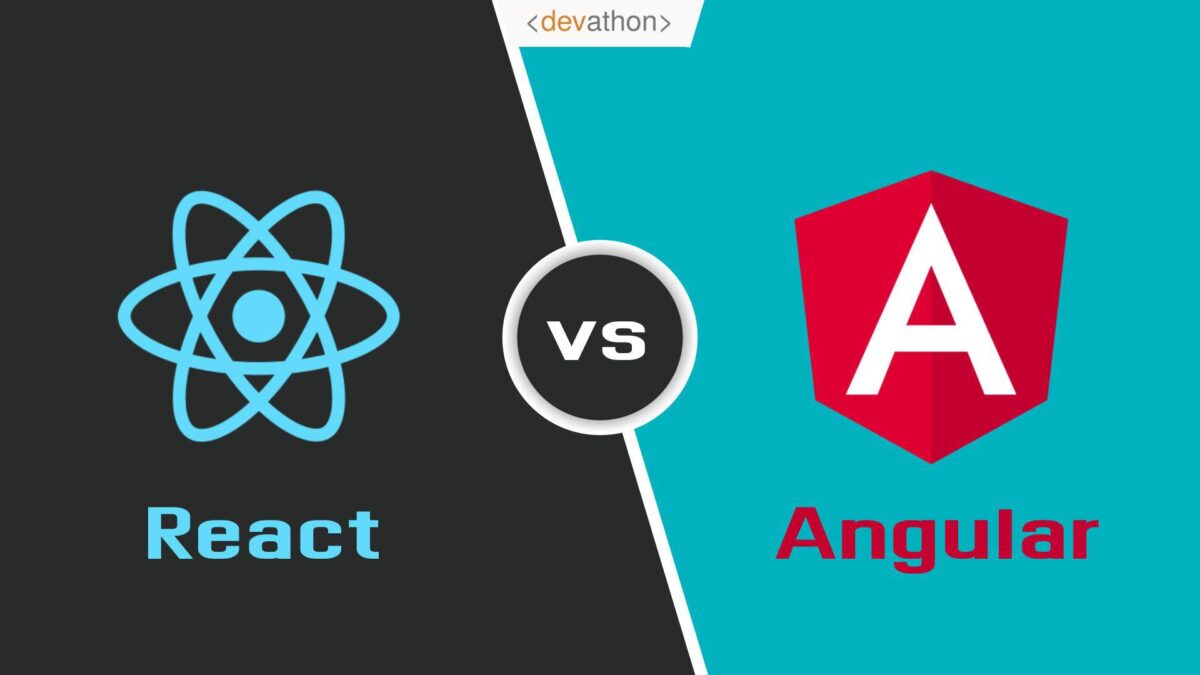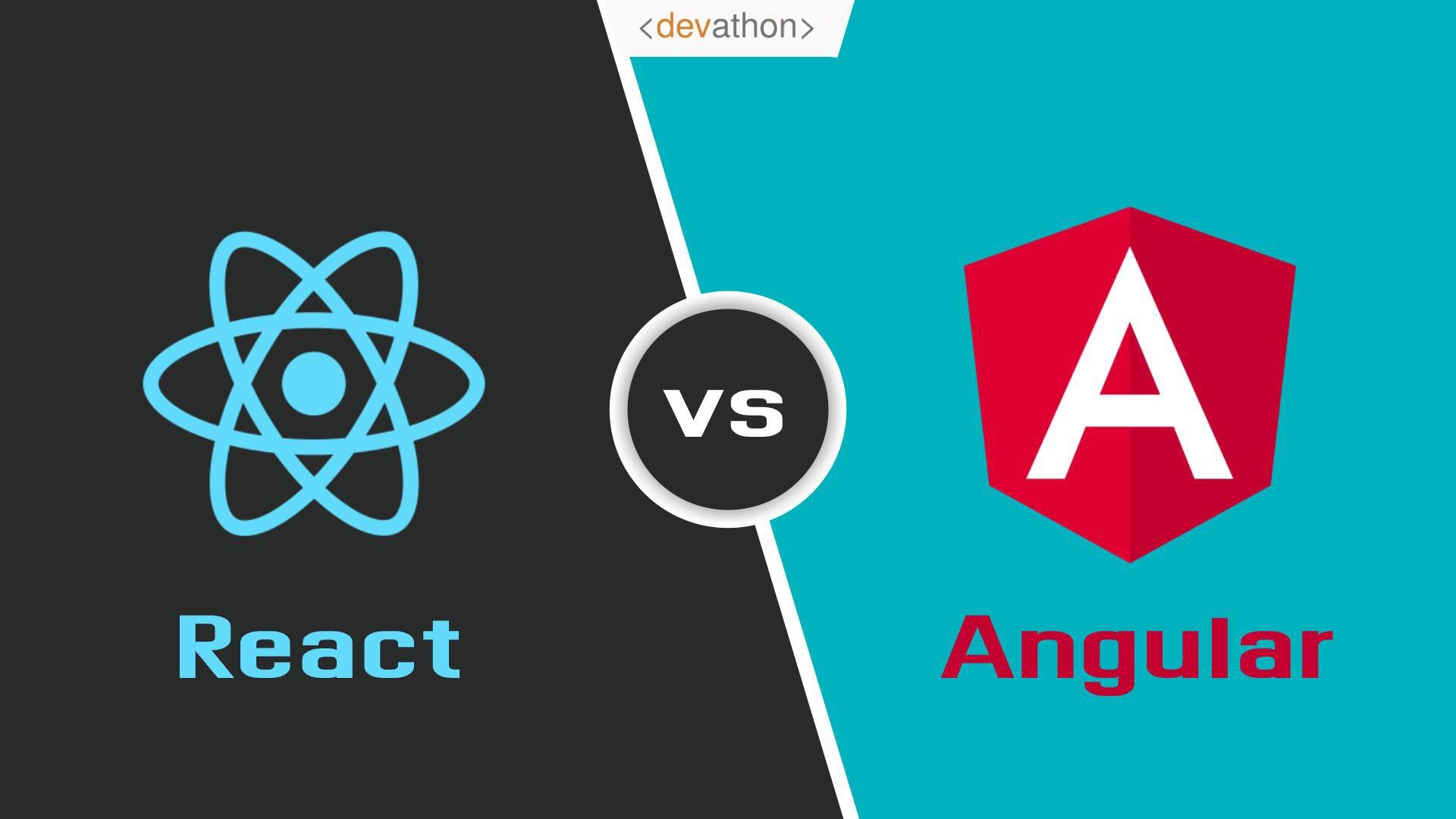
React vs. Angular in 2020: Which JavaScript framework should you use?
When you plan to launch a web app for your business, you need to decide about the framework/library to use. You might be weighing between React vs. Angular, and wondering which JavaScript framework/library should you use in your project. In this guide, we explain the pros and cons of both, moreover, we describe the factors you should consider when choosing any one of them.

React and Angular: What are they, and why do they matter?
React, also called React.js or Reactjs, is a JavaScript library, and you can build user interfaces using it. Your development team can design simple views for each state of your application using React. React has components whose logic is written in JavaScript, and React updates and renders the right components when the data changes.
Angular is an open-source front-end framework based on TypeScript, and it was rewritten from AngularJS, the JavaScript-based web framework.
With AngularJS, you can develop apps that utilize the Model View Controller (MVC) architectural pattern, i.e., the data model, presentation information, and control information of the application are separate. AngularJS also supports the Model-View-ViewModel (MVVM) architectural pattern, in which there is a separation between the UI control and business logic.
Angular uses a hierarchy of components instead of controllers, which is different from AngularJS. The use of TypeScript, i.e., a typed superset of JavaScript in Angular is another difference with AngularJS, moreover, Angular has its own UI components called Angular Material.
A brief history of React and Angular
Jordan Walke from Facebook had created React, however, it was known as FaxJS at that time. Facebook deployed it in its newsfeed in 2011, and this was implemented on Instagram in 2012. The first open-source release of React was in 2013, and a community of developers along with Facebook maintains it. In 2015, Facebook released open-source React Native for native development on Android and iOS.
Miško Hevery from Brat Tech LLC had developed AngularJS in 2009, and its first open-source release was in 2010. Google and a community of developers now maintain this framework. It’s in long-term support (LTS) mode since July 2018, i.e., barring severe issues, there will be no new release of AngularJS. Google ran a project to completely rewrite it, and they released Angular in 2016.
Businesses that use React and those that use Angular
Both React and Angular are prominent, and well-known global businesses use them.